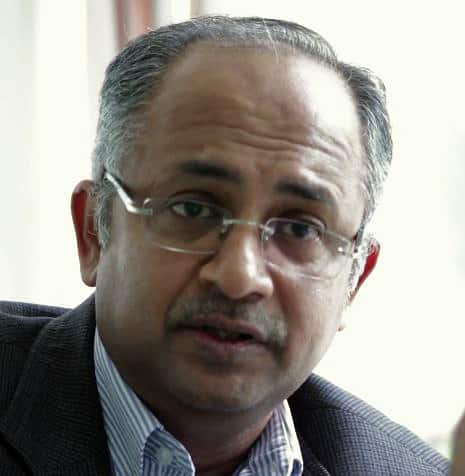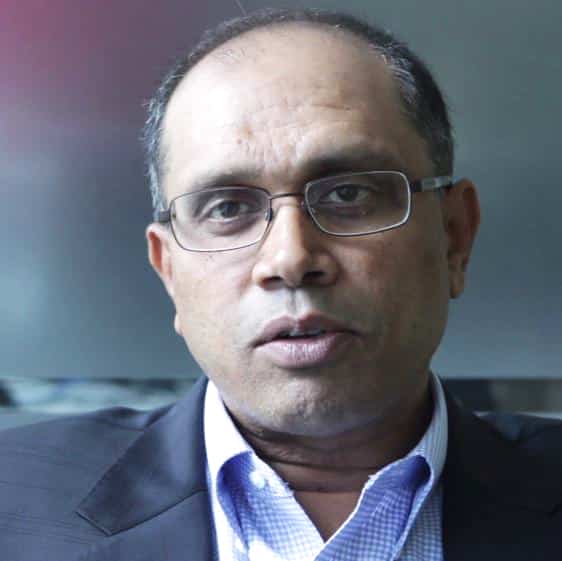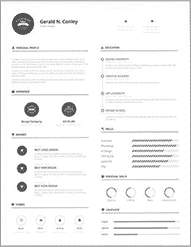Written for Ad Astra Blog by – V Raja the MD of Taiki Consulting Pvt Ltd and the ex-Chairman & MD of Philips.
The health of an organization is often evaluated by its balance sheet with emphasis on the quality of the assets and corresponding liabilities. Intangible assets reflected in the financials are often ignored when trying to understand the net worth of the company. It is a travesty of justice that the most important intangible asset that is the edifice on which the balance sheet it built, namely, Talent, is neither evaluated nor reflected anywhere. Without exception, there is always a strong correlation between an extremely well run and financially strong organization and the talent pool it holds as an intangible asset. It is the continuous nurturing of this talent that determines its ongoing success and leadership in the market place.
Attracting, nurturing and grooming talent is a continuous journey and every organization has its own road map for the same. Interestingly, age-old good Institutions such as Ramakrishna Mission, Sankara Mutt, do a much better job and have a stellar record of the same. While the brand value of the organization or institution attracts talent, it is the nurturing of the same that differentiates the resultant impact both on the individual and the organization. As is obvious there is no cookbook recipe for nurturing talent and it does vary according to each organization and the leaders who invest in the same. Let me try and share some perspective on the same from my experience and learnings in this journey.
RECOGNITION
Early identification of talent is key to success for obvious reasons. Ability to mould a youngster and help them learn and unlearn is much easier than with a much more experienced and older person. For the latter there may be limitation on growth and hence key focus would be to harness their expertise and skills and keep them motivated to perform to their potential.
A person identified as good talent needs to know the same. In an age where there is a war of talent and opportunities are plenty it is important that recognition of talent is transparent and communicated to the person. The journey of grooming them for bigger roles starts from here and this communication helps them to remain motivated and committed to the organization. They get visibility in the organization and know that they need to perform to maintain that status or else they would be off the list. This also creates peer pressures and raises the organizational bar for performance.
STRETCHING AND CHALLENGING
One of the toughest training schedules is of the US Navy Seal. The grueling challenges and obstacles they have to go through are legendary and very few make it. Those that do are truly exceptionally talented. To get the best out of our talent we need to stretch them with challenging assignments, beyond their normal scope of work. This typically tests their inclusiveness, team playing skills, navigating unknown terrain and is a great way to prepare them for the future. More often the assignments centre on organizational challenges and choices and serve useful purpose for the individuals and organization. I recall an assignment to grow both the revenue and margin of a product portfolio that was a drag on our business and neglected by most leaders. The team came up with an excellent plan to revive it and I gave the role of executing the plan to one of the team members. That person executed it well, grew in the company to take on larger roles and today heads a large Industrial company for India and Middle East. Similarly, a young brilliant finance professional whom I spotted early on and intuitively felt could become a global CFO reached that position for an $18B business but not before undergoing several tough assignments in
India and in difficult markets. This part of the journey in nurturing of talent decides and determines the gap if any between perception and reality.
DELEGATION AND EMPOWERMENT
If you throw a puppy in a pond, mostly it would swim and survive whilst a few may drown. While nurturing talent you need to apply this test and determine ability to survive on their own. This calls for both delegating and empowering them to take decisions. Talented people love to take the lead and also enjoy the power of taking decisions. If someone is considered to have the potential to be a CEO, give him or her a small business to lead independently and allow them to take their own decision. As a leader and nurturer of talent do not micromanage and be prepared for mistakes. Guide them but make them take the business calls or else you will end up with the “monkey on your back”. Accountability for their decision backed by empowerment to make the business calls is crucial for both the individual and organization to validate the potential of the talent. If they fail to evaluate what went wrong and try alternative roles or projects that could be more aligned to their capability. Unless we invest in this kind of experiment the Navy seals of organizations would never emerge.
I had a young talented sales manager in our healthcare business who constantly felt that we were not focused on our corporate customers and our structure did not enable us to effectively manage them. Seeing the merit in his observations I gave him the task of setting up the structure, recruiting the talent and building the business from scratch. He did an exceptionally good job of building over a $20M business from virtually zero and today this structure is the key differentiator in the healthcare business and other organizations have followed the model. The individual has gone on to become the head of another healthcare organization across Asia pacific. One of the building blocks for his career growth was this experiment.
Focus on the strength and not on the weakness
There is no individual in this world without talent. The key to their success lies in leveraging their strength and performing their potential. This is an essential part of nurturing talent. Organizations tend to quickly brand people as unfit or poor talent by trying to match their needs with those that the individual displays. It is often like fitting a square peg in a round hole and blaming the peg for it. This destroys the individual’s talents and reflects very poorly on the organizational leadership nurturing the talent. There is a strong connection between aptitude, talent, and performance. We need to align this or else it would be waste of time and resources.
For the role of a supply chain manager, invariably the organization would look for someone with similar experience and background internally or externally. This would limit our choice and also the talented supply chain manager would after some time lose interest in doing the same type of work, albeit with more complexity, or a different industry, etc. and perhaps with a higher paycheck and bigger designation.
Promoting and nurturing talent would warrant consideration of candidates from other disciplines who has the willingness to learn, passion at work and excited to take this role. This has its own risks but it is a great way to nurture talent. Many well-known organizations like Unilever, GE, Mckinsey, Microsoft, look at leadership talent and not functional expertise to move their people around roles. Roles of sourcing, Commodity buying, Supply chain, Human resources no longer remain the domain of the functional experts for these organizations. Their leadership pipeline and talent management are a testimony to the efficacy of this practice.
One of my colleagues who was running a service business was not performing to his potential and I was under pressure to let him go. Having worked with him for several years and knowing his strength I moved him to another newly incubated business segment and he went on to not only make it a very successful
growth segment for us but won the global growth award for the same and today is the Head of a$200M business in India. It is all about aligning the talent to its strengths and not keep harping on its weakness.
COMMUNICATION AND VISIBILITY
Every individual who is ambitious and is aspirational wants constant feedback. In today’ world where the average age of CEO is less than 40 and entrepreneurs are mostly in their late 20’s, it is important that the communication channel with the talent in the organization is functional. Periodic feedback on their performance, areas of appreciation and development and expectations from them are clearly shared and updated regularly. It is equally important to listen to them, understand their expectations, challenges and frustrations and help them navigate the same. This would be a combined role of a coach and mentor to the budding talent.
Young smart professionals crave for attention and visibility in the corridors of power. Providing them the opportunity to meet, greet and interact with both local and overseas leaders of the company gives them immense satisfaction and provides huge motivation. They clearly see this as recognition and opportunity to display their talent and every effort must be made to provide the same.
The organization takes a different route for this including a roundtable with visiting leaders from headquarters, presenting at key forums within the organization, one on one session with leaders, etc. In addition creating time exclusively for them one on one and off work also helps in keeping them engaged and energized. It is akin to investing in stock markets where you need to be wired to the happening and be present at all times.
The need for talent and ability to keep them within an organization is going to only increase with intensifying of the competitive landscape of business and growing aspirations of the younger generation. Investing in nurturing talent is like constantly watering and nursing your plants at your garden or grooming your own children. The former increases the value of your property and the latter ensures the future of your family. It is the same for the organization. The future journey and its roadmap continue to be dynamic and you need the right talent to take you to your journey safe and healthy.
Invest in them and your balance sheets will get stronger.

































